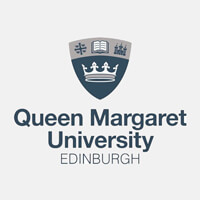fees waived
Digital Marketing and Public Relations, BA (Hons)
Queen Margaret University, United Kingdom
Subject ranking
UK / Times 2025 43rd
UK / Times 2025 67th
UK / CUG 2024 74th
Costs
food & rentS$17.2K / year
Entry requirements
Scholarships
6 available
11 - 20 available
More than 50 available
Limited quantity
Information
Code
Intakes
Website (External)
Programmes
Information
Duration
2029
Course summary
September 2025 Entry: please note this course is only accepting applications onto Year 1 and 2, there is no entry for Year 3. If you are interested in Year 3 entry please take a look at our BA (Hons) Public Relations and Marketing Communications course (P211)Our professionally-recognised BA/BA (Hons) in Digital Marketing and Public Relations course provides the strategic insight, practical skills and industry experience to kickstart your career in the fast-paced and rapidly growing industries of Digital Marketing and PR.Digital marketing and public relations (PR) are fascinating, fast-moving fields that offer many rewarding career opportunities. Thanks to converged media and the voracious consumer appetite for digital content, they are constantly evolving and on this course you will enjoy frontline professional experience and tuition informed by cutting-edge scholarship.You have access to and use a host of digital tools and software such as Premiere Pro and Photoshop from the Adobe Creative Cloud to edit videos and photos, Google Analytics to analyse website performance, Canva Pro for designing and creating impactful content, Hootsuite for scheduling social media posts, Semrush for competitor analysis and on-page SEO optimization, and PRMax for creating targeted media lists. This means that when you start your career in digital marketing and PR you will have a working knowledge of the products used by practitioners.On this course you will:
- Experience an unrivalled opportunity to study two closely aligned disciplines: marketing and public relations. Organisations often take an integrated digital approach to communication, bringing together these two disciplines to help drive success. While marketing focuses on relationships with the customer, PR manages relationships with a broader range of stakeholders including employees, the government and the media;
- Develop strategic thinking, informed by theory, and apply this to live client work to produce communication solutions that aim to drive positive social change;
- Consider how organisations build and maintain reputations, create social capital and manage issues and crises;
- Develop storytelling skills to inform the media and persuade audiences;
- Create authentic and shareable multimedia content such as video, photography, podcasts, infographics and blogs for a range of social media platforms;
- Undertake research to gain insights from data that can inform your decision making, and measure the effectiveness of campaigns using a range of analytics and metrics;
- Appreciate how businesses use search engine optimization (SEO), pay-per-click (PPC) advertising, social media marketing, email marketing and influencer marketing, alongside more traditional forms of advertising, to drive more traffic to their websites, generate leads, and increase sales;
- Gain a wealth of experience through work placement and volunteering opportunities; and
- Have the opportunity to study abroad at one of our partner institutions for a semester. These include universities in Australia, New Zealand, Canada and the USA (subject to availability).
Modules
Year 1 ModulesStudying Media and CommunicationsMarketing and Consumer BehaviourDigital Content CreationMedia and Communication IndustriesMedia Production: Skills and TechniquesMedia Production: Video ProjectYear 2 ModulesPopular Media CulturesDigital Communications CampaigningMedia Production: PodcastingEvent ManagementAnalytics, Insights and ImpactDigital Marketing and e-Commerce ManagementYear 3 ModulesCampaigning and PracticeMarketing Communications and Digital AdvertisingDesigning a Research ProjectPersuasive CommunicationPlus two optionsYear 4 ModulesProfessional Communication PlacementStrategic Marketing ManagementDissertationPlus one optionYear Three and Four options may include: Reputation Issues and Crisis ManagementPhotography and Visual CultureFilm FestivalsCommunication Arts and ActivismPolitical CommunicationRadio and Audio MediaPhotography PracticePop MusicScreenwritingFilm and the FamilyCo-creating and managing your our own client projectThe modules listed here are correct at time of posting (May 2023) but may differ slightly to those offered in 2024. Please check back here for any updates.
Assessment method
We use a mix of methods including lectures, seminars and practical workshops. As well as these face-to-face interactions, some content is delivered online. Each module is supported by a virtual learning resource site. As well as lecture notes, seminar activities, key readings, assignment specifications and discussion forums, additional materials such as videos, radio edits and links to other resources can be uploaded to the site.The assessment strategy uses a range of methods to support your academic and professional development. These include: essays, reports, presentations, online discussions/postings, exams, reflective diaries, e-portfolios and content production for different media such as video, photography, website, podcasts, blogs, posts and tweets.
Qualified teacher status (QTS)
To work as a teacher at a state school in England or Wales, you will need to achieve qualified teacher status (QTS). This is offered on this course for the following level:- Course does not award QTS
Year 1 Modules Studying Media and Communications Marketing and Consumer Behaviour Digital Content Creation Media and Communication Industries Media Production: Skills and Techniques Media Production: Video Project Year 2 Modules Popular Media Cultures Digital Communications Campaigning Media Production: Podcasting Event Management Analytics, Insights and Impact Digital Marketing and e-Commerce Management Year 3 Modules Campaigning and Practice Marketing Communications and Digital Advertising Designing a Research Project Persuasive Communication Plus two options Year 4 Modules Professional Communication Placement Strategic Marketing Management Dissertation Plus one option Year Three and Four options may include: Reputation Issues and Crisis Management Photography and Visual Culture Film Festivals Communication Arts and Activism Political Communication Radio and Audio Media Photography Practice Pop Music Screenwriting Film and the Family Co-creating and managing your our own client project The modules listed here are correct at time of posting (May 2023) but may differ slightly to those offered in 2024. Please check back here for any updates.
A local representative of Queen Margaret University in Singapore is available online to assist you with enquiries about this course.

